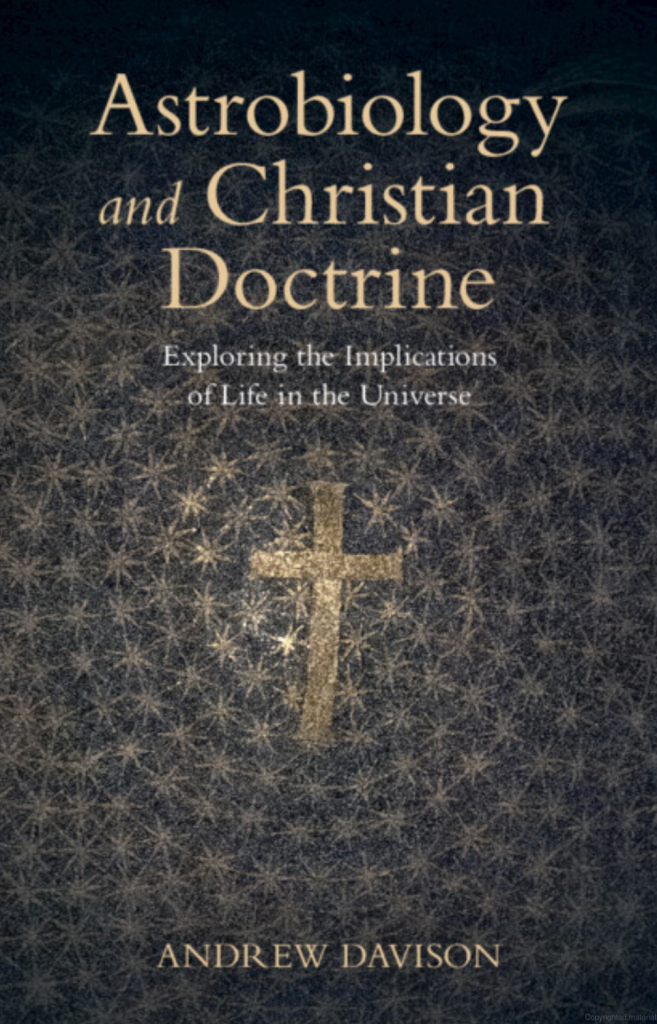Andrew Paul Davison
Professor of Theology and Natural Science
Cambridge University
Theological Implications of the Natural Origins of Life
Thursday, November 23, 2023 @ 4 PM
Live in Woodward (IRC) Room 3, UBC
Video no longer available
Abstract
Widespread scientific confidence in there being a natural origin of life, rather than a supernatural one, is a latecomer in the history of thought, held back as much by scientific considerations as by belief that this is more the purview of religion. Yet, over the course of the past century, a natural origin has become the default position. Surprisingly little theological thought has been given to that, with the mainstream churches taking a natural origin for granted, while some more conservative traditions hold out against the possibility. In this talk, Professor Davison will sketch this history, and argue that while Christian theology can take a natural origin to life in its stride, that deserves more attention than it often gets.
Biography
One of the founders of the Cambridge Leverhulme Centre for Life in the Universe, Andrew Davison is the Starbridge Professor of Theology and Natural Sciences at the University of Cambridge, and Fellow in Theology and Dean of Chapel at Corpus Christi College. He is the author of many books, including Participation in God: A Study in Christian Doctrine and Metaphysics and Astrobiology and Christian Doctrine: Exploring the Implications of Life in the Universe (both Cambridge University Press).
Many Thanks to the UBC Murrin Fund
See also: https://csca.ca/2023/10/30/davison-23/
“Something objective underlies any true sense of things, whether in knowledge of a creature, or in a creature’s witness to God. It does not require a denial of contingency, however, or mediation when it comes to knowing…. However, none of those elements of contingency, mediation, or particularity need undo the realist sense that, at root, knowledge is a witness to reality, based on a reception from that reality. To be true, knowledge need only to be a faithful participation in it, a faithful reception from it.” (A. P. Davison, Astrobiology and Christian Doctrine, 129-30)
“The emergence of life within the realm of the non-living is a shift of the highest significance. It is so profound, on a qualitative level, as to render quantitative comparison otiose…. Above all, Christian theologians would want to say that the Incarnation, even more than the presence of human life, crowns the extraordinary dignity of life on Earth, or the dignity of the entire cosmos.” (A. P. Davison, Astrobiology and Christian Doctrine, 81)
“[Life] infuses [the living thing] with an increased perfection, a more intense degree of being. We may say, therefore, that living things exist more intensely; they have a higher pitch of being: they are more. The flower growing unobserved and hidden in a crevice upon the highest mountain has greater interiority and intensity of being: it is more than the mountain, greater in its interior perfection than the giant and majestic beauty of the physical universe: it is more. In this light we may read Acquinas’ remark: nobilis cuiuscumque rei est sibi secundum sum esse [Every excellence in any given thing belongs to it according to its being].” (Fran O’Rourke, ‘Virtus Essendi: Being in Pseudo-Dionysius and Acquinas,’ Dionysius 15 (1990): 68-9.
Sample Video by Dr. Davison on Plato & Theology https://www.youtube.com/watch?v=LMahVSGqZiY
“The distinction and multitude of things come from the intention of the first agent, who is God. For he brought things into being in order that goodness might be communicated to creatures, and be represented by them; and because his goodness could not ne adequately represented by one creature alone, he produced many and diverse creatures, that what was wanting to one in representation of divine goodness might be supplied by another. For goodness, which in God is simple and uniform, in creatures is manifold and divided and hence the whole universe together participates the divine goodness more perfectly, and represents it better than any single creature whatever.” (Thomas Acquinas, Summa Theologica, I.47.1)
“This is not a book that predicts the future. It asks only ‘What if there is life in the Universe, beyond the bounds of Earth?’ Does such a postulate influence Christian doctrine? There are two motives in the mind of the author: (i) to prepare the human community to be ready to receive and process future signs of life elsewhere and (ii) after a journey in unfamiliar territory, to return home with fresh eyes. In nineteen tightly packed chapters, Andrew Davison, a metaphysical realist, addresses theological implications of the 1995 discovery of an exoplanet orbiting another star like our own sun. Our understandings of creation, revelation, uniqueness, Christology, eschatology and much else are given a fresh coat of paint. This is a must read for all of us.” (Dr. Olav Slaymaker, Professor Emeritus Geography, UBC)
p.s. I am fascinated by Andrew’s book both in terms of it’s intellectual honesty and it’s identification with metaphysical realism. His careful discussion of the contemporary relevance of Aquinas is also new for me.
Cosponsorsed by:


Next GFCF Event:
Christopher Watkin, French Studies, Monash University, Melbourne, Australia.
February 7, 2024 on Zoom
The Bible as a Tool for Changing Culture.
Biography: Christopher Watkin (PhD, University of Cambridge) is senior lecturer in French studies at Monash University in Melbourne, Australia. He is a scholar with an international reputation in the area of modern and contemporary European thought, atheism, and the relationship between the Bible and philosophy. His published work runs the spectrum from academic monographs on contemporary philosophy to books written for general readers, both Christian and secular, and include Difficult Atheism, From Plato to Postmodernism; Great Thinkers: Jacques Derrida. His recent impressive 2022 tome with Zondervan Academic is Biblical Critical Theory: How the Bible’s Unfolding Story Makes Sense of Modern Life and Culture. “This is one of the most brilliant, wisdom-packed books that I have read in some time. Chris is so well-read and thoughtful, a real boon to the Christian faith and thought.” ~Dr. Gordon E. Carkner


